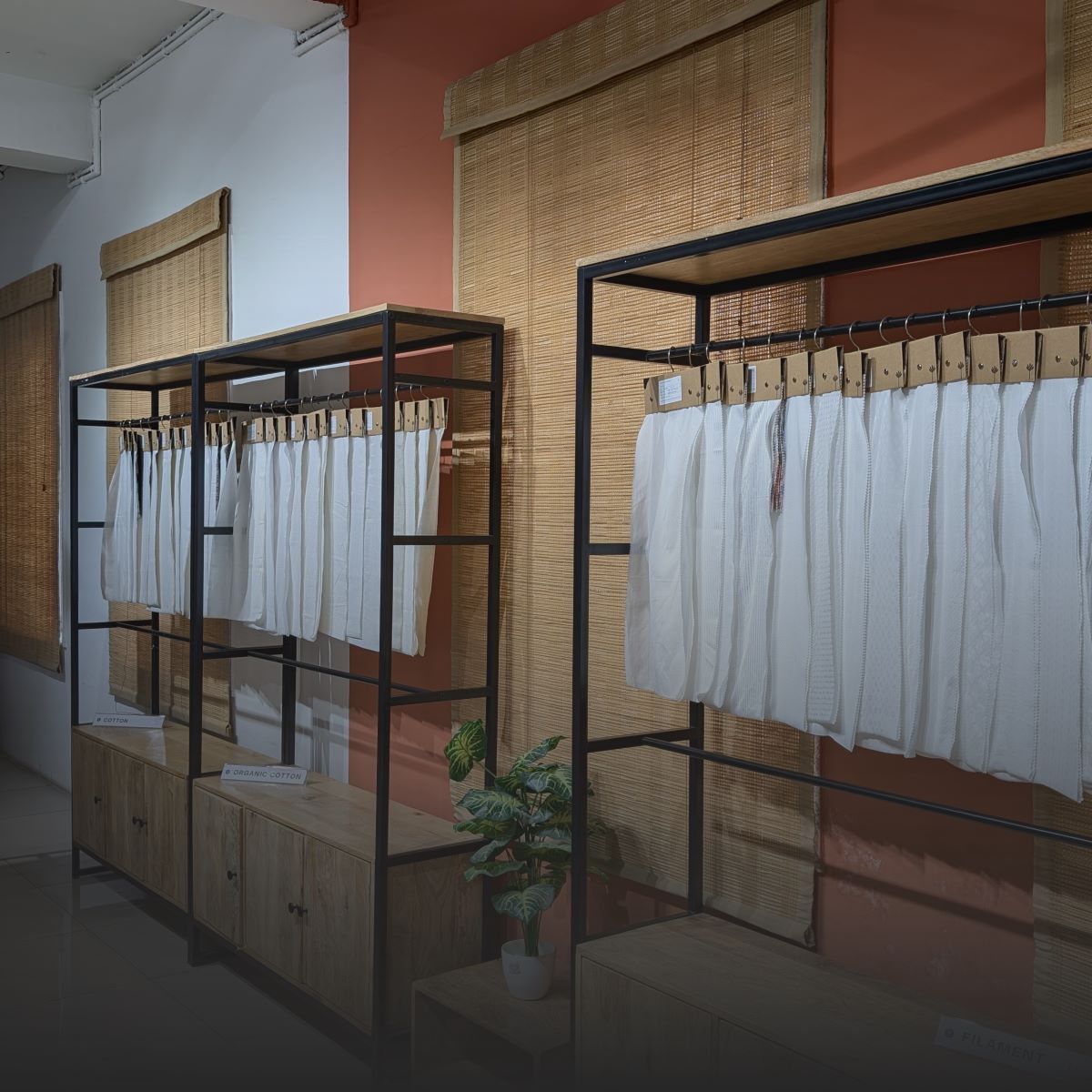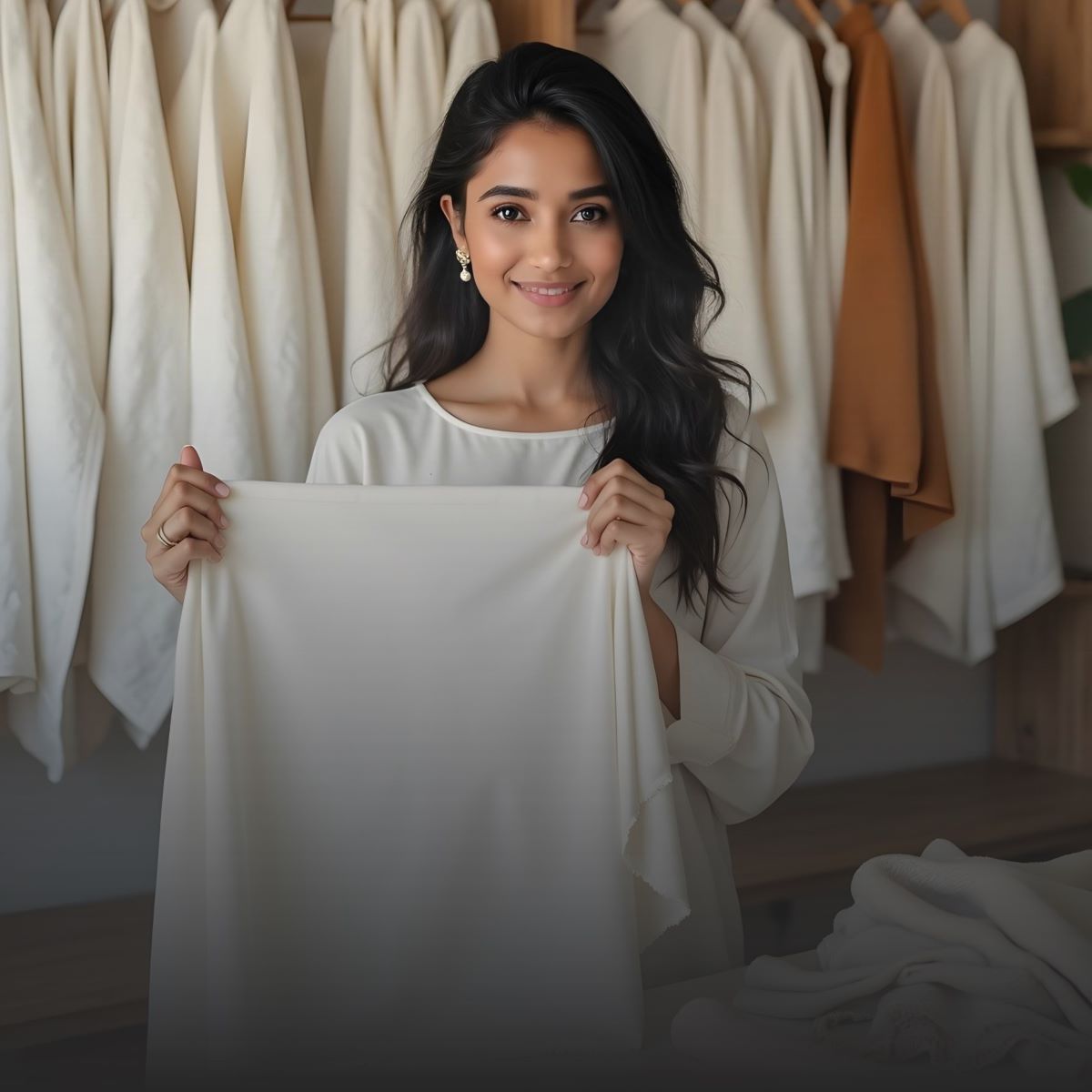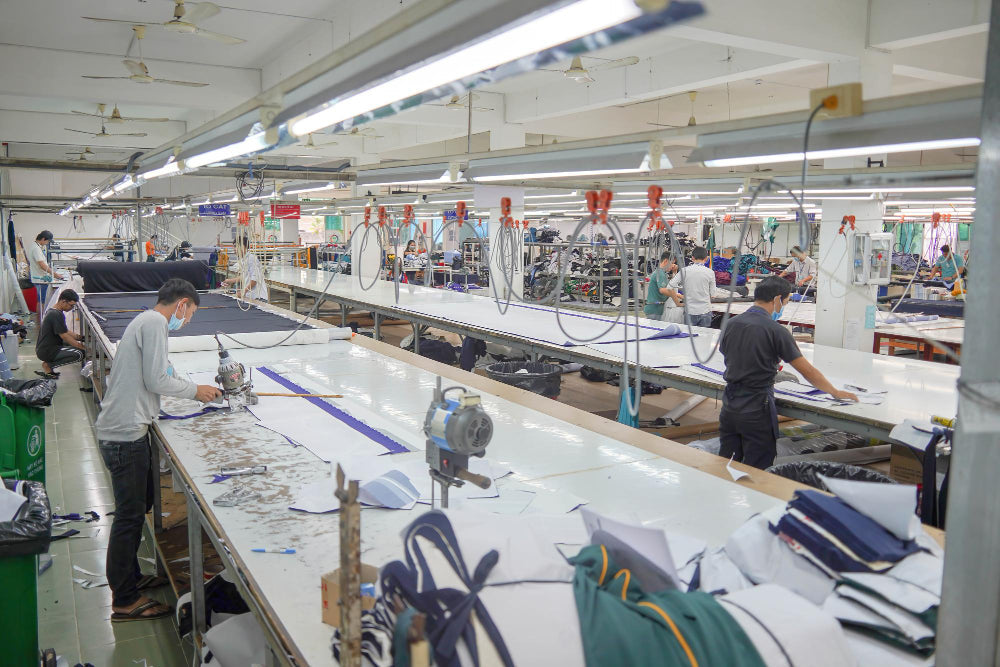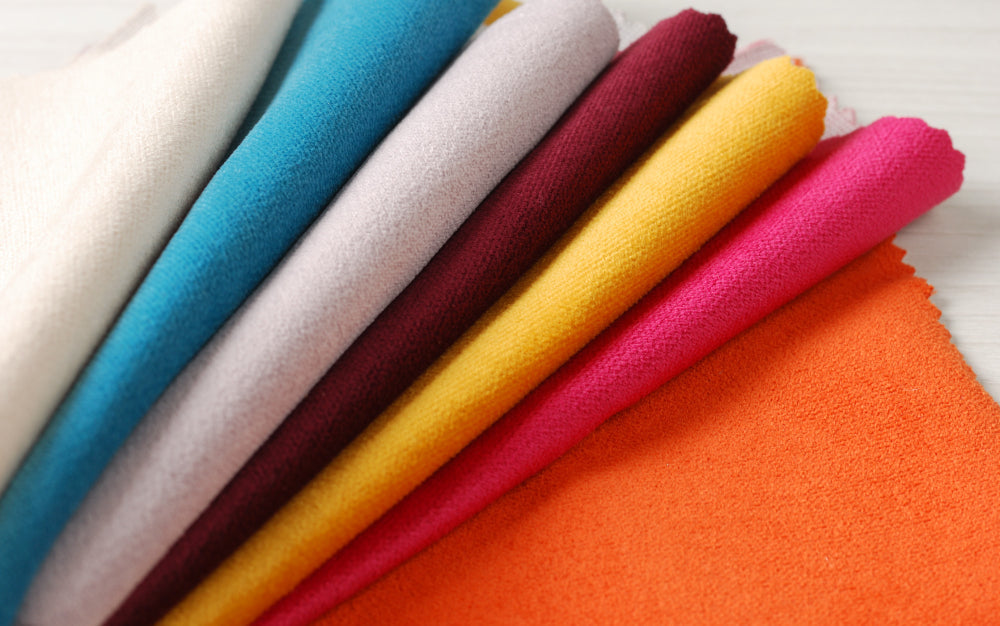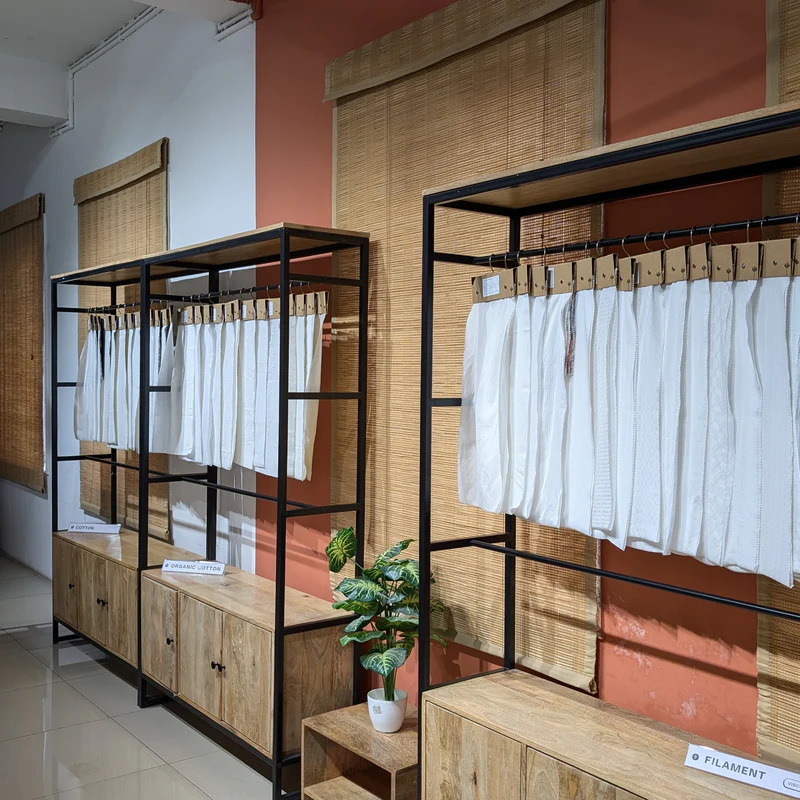The global fashion industry is changing. Old mass production models, characterized by long lead times and high minimum order quantities, are not practical for today's fast and sustainability-focused market. Emerging businesses, like fashion labels, D2C startups, or boutique retailers, face a clear challenge: how to produce high-quality apparel without excessive costs, delays, or sourcing issues?
Finding the right garment manufacturing hubs in the USA and partnering with flexible global allies is key for small to mid-sized fashion businesses. This article covers the main garment production areas in the US, the challenges for startups, and how private label garment manufacturing partners like Fabriclore are helping brands grow with speed, sustainability, and scalability.
Challenges Emerging Fashion Businesses Face in Manufacturing
First, let's talk about why new brands often have trouble with manufacturing in the first place, before we talk about the hubs:
1. High MOQs and Financial Barriers
Many suppliers in the US and Europe require 500–1000 pieces per style, which is too many for new businesses just starting to test with small collections. Big investments up front cause overstocking risks and money problems.
2. Long Lead Times
It can take 6–8 months for traditional companies to deliver, which doesn't work with fast fashion cycles or the seasonal schedules that most brands follow.
3. Fragmented Supply Chains
Getting fabric from one seller, dyeing from another, and stitching from a third—this disjointed model makes things more expensive, takes longer, and leads to quality problems.
4. Limited Customization
Many places offer basic stitching services. Modern brands, on the other hand, want custom fabric sourcing, printing, embroidery, trims, and branding to all be done in one place.
5. Sustainability Pressures
Because of EU eco-regulations and more aware consumers, brands need to work with sustainable garment manufacturers that can offer certified fabrics like Fair Trade, OEKO-TEX, and organic or recycled materials.
Due to these challenges, fashion companies are seeking local USA hubs and flexible global partners to help them strike a balance between cost, speed, and sustainability.

Top Garment Manufacturing Hubs in the USA
The United States remains a major center for clothing production. Although American factories are more expensive to operate than their Asian counterparts, they provide speed, transparency, and premium quality, making them particularly useful for emerging brands and luxury segments.
1. Los Angeles, California – The Streetwear & Denim Capital
Los Angeles is known for making streetwear, denim, and high-end clothes. It is the largest garment manufacturing hub in the USA.
- Strengths: Finishing on denim, casualwear, athleisure, and eco-friendly names.
- Why it's great for startups: Access to places that sell fabrics, dress shows, and creative people.
- Challenges: Although it costs more to hire workers here than in Asia, tasks are completed more efficiently.
2. New York City, New York – The Designer's Playground
The NYC Garment District is known for high-end and brand clothes.
- Strengths: It's close to famous designers and has access to high-end fabrics and skilled artisans.
- Why it's great for startups: It's perfect for high-end names, couture houses, and small collections.
- Challenges: High production costs and limited room for bulk growth.
3. The Carolinas (North & South Carolina) – Textile & Activewear Leaders
The Carolinas have a long textile history and are now centers for knitwear, activewear, and technical fabrics.
- Strengths: Established mills, knowledge of performance fabrics, and cheap bulk output.
- Why it's great for startups: A good mix of quality and growth potential.
- Challenges: Not as good for small batches or runs with a lot of special requests.
4. Texas – Denim & Cotton Specialists
Because it has a cotton heritage, Texas is a center for casual wear and jeans.
- Strengths: Access raw cotton, produce jeans, and wear Western-style clothing.
- Why it's great for startups: Strong environment for jeans makers.
- Challenges: There are limited options in groups other than cotton-heavy ones.
5. Midwest (Chicago, Ohio, Michigan) – Rising Hubs
The Midwest is becoming a smaller but more affordable garment hub.
- Strengths: Strong transportation hubs and lower labor costs.
- Why it's great for startups: Cost-effective for regional names and e-commerce labels.
- Challenges: There are fewer artistic opportunities compared to LA or NYC.
Also Read: Low MOQ Garment Manufacturing Simplified in the USA
Beyond Regional Hubs – The Role of Global Manufacturing Partners
Plenty of emerging brands struggle with costs, fabric variety, and low MOQ options, even though these hubs are strong. More and more people are looking for global manufacturing partners that can help them with fabric sourcing, private label support, customization, and sustainability on a big scale.
Fabriclore is a great partner because they make clothes and have USA-based operations as well as a global sourcing network.

Fabriclore – A Trusted Garment Manufacturer in the USA
In the USA, many garment manufacturers are highly specialized. Some factories specialize in denim apparel, while others focus on cotton basics, knitwear, or premium couture fabrics. This narrow focus often forces fashion brands to manage multiple suppliers for different product categories—adding complexity, higher costs, and longer timelines.
Fabriclore changes this model. As a global online-first fabric sourcing and garment manufacturing platform, it provides everything under one roof:
- Browse 1,000+ fabrics (cotton fabric, linen fabric, silk fabric, viscose fabric, polyester fabric, denim fabric, eco-blends, and more).
- Order fabric swatches to validate GSM, drape, weave, and finish before committing.
- Share your tech pack or design references to start garment production.
- Access end-to-end support, from fabric sourcing and sampling to stitching, finishing, and final packaging.
This integrated approach makes Fabriclore stand apart as one of the few platforms where brands can handle both fabric sourcing and full garment manufacturing seamlessly.
Fabriclore stands out from traditional manufacturers by offering a complete, integrated solution under one roof. Here's how the company supports fashion startups, D2C brands, and global retailers with end-to-end garment manufacturing services:
End-to-End Apparel Expertise
Fabriclore has earned the trust of global brands, fashion startups, and boutique labels by offering custom apparel manufacturing in the USA. From pattern development and prototyping to printing, finishing, and packaging, Fabriclore provides a transparent, streamlined process.
Low MOQ Clothing Manufacturer in the USA
Unlike traditional mills requiring 500–1000 pieces, Fabriclore supports small batch production starting at 300 pcs per style, 50 pcs per size. This makes it ideal for startups, D2C brands, and boutique retailers.
Private Label Support
Fabriclore is a private label garment manufacturer offering custom tags, labels, packaging, and trims. Brands can launch collections that feel fully theirs, without handling complex supply chains.
Sustainable Garment Manufacturing
Sustainability is very important to Fabriclore. The firm provides organic cotton, TENCEL™, LIVA™ Fabric, viscose blends, and Bemberg™ fabrics , with both GOTS and OEKO-TEX certifications . Ethical production is made possible by eco-friendly dyeing, cutting with little waste, and green packing.
Custom Fabric Sourcing & Sampling
Fabriclore helps brands choose from cotton, linen, silk, polyester, denim, and eco-blends. They provide sample swatches and prototypes, allowing brands to test GSM, drape, and quality before committing to bulk.
Bulk Apparel Production & Quality Control
Fabriclore operates as a USA-based garment factory, ensuring 30-day production timelines, strict QC on stitching and finishing, and global delivery to the USA, UK, Europe, and beyond.
Your Strategic Manufacturing Ally
More than a supplier, Fabriclore positions itself as a strategic partner. Whether it’s womenswear, activewear, kidswear, or streetwear, they offer design-to-delivery support with efficiency and creativity.
Also Read: Top Sustainable Practices For Garment Production In The USA
Why Emerging Businesses Choose Flexible Partners Like Fabriclore
For small and mid-sized fashion businesses, the benefits are clear:
- Speed to Market – Launch in weeks, not months.
- Low Financial Risk – Test collections with low MOQs.
- Sustainable Fabrics – Meet consumer and regulatory demands.
- Customization & Branding – Differentiate collections.
- Scalable Production – Grow from 300 pieces to thousands with the same partner.

The Future of Garment Manufacturing in the USA
The future will be a hybrid. New brands will keep using local USA hubs for speed and premium categories and global partners like Fabriclore for fabric variety, low MOQs, and sustainable sourcing. This will be even better with digital tools like 3D design visualization, ERP systems, and AI-driven supply chains.
Conclusion
For emerging businesses, choosing the right garment manufacturing hub is not just about geography—it’s about finding a partner who solves your sourcing, customization, and scalability challenges.
While hubs like Los Angeles, New York, and the Carolinas remain vital, global private label manufacturers such as Fabriclore are reshaping the way brands approach apparel production. With low MOQ flexibility, sustainable fabrics, and end-to-end solutions, Fabriclore helps fashion brands not only survive but thrive in today’s competitive market.
If you’re a startup, boutique label, or growing D2C brand, the best garment manufacturing partner is the one that gives you speed, sustainability, and creative freedom—all under one roof.
Also Read: USA Compliance & Certifications Needed for Garment Factories in 2025
FAQs
Q1. Why Should Startups Work With A Low Moq Clothing Manufacturer In The Usa?
Startups often cannot commit to large orders of 500–1000 pieces per style, which traditional mills demand. A low MOQ clothing manufacturer in the USA—like Fabriclore—allows brands to start from 300 pieces per style and 50 pieces per size’. This flexibility reduces financial risk, helps test collections, and enables brands to scale gradually.
Q2. Is Private Label Garment Manufacturing Better Than Wholesale Buying?
Yes. Private label garment manufacturing gives brands full creative control over fabrics, colours, designs, trims, and packaging—unlike wholesale buying, where you resell generic stock. Private label helps brands create exclusive collections, stronger brand identity, and higher profit margins, making it the preferred choice for startups and boutique retailers.
Q3. What Categories Can Private Label Garment Manufacturers Cover?
Private label makers, like Fabriclore, make clothes for a wide range of fashion types and help brands put together whole lines in one place. There are a lot of different groups, from practical everyday items to unique, eco-friendly lines:
- Menswear: shirts, pants, slacks, and loungewear
- Womenswear: Dresses, formalwear, and cultural fusion for women
- Kids' wear: loungewear, exercise, and casual clothes
- Accessories- like scarves, stoles, bags, and scrunchies
- Sustainable Clothing—custom-made designs that are eco-friendly
Q4. How Long Does Garment Manufacturing Take In The USA?
Due dates rely on the manufacturer, the size of the order, and how complicated it is. It can take 6–8 months for traditional mills to deliver, but it only takes samples in days and bulk production in as little as 30 days for faster producers like Fabriclore. This speed is very important for fashion brands that work in seasonal markets that change quickly.
Q5. What Makes Fabriclore A Trusted Garment Manufacturer In The Usa?
Fabriclore is recognised as a garment manufacturer in the USA that supports emerging businesses with low MOQs, private label services, certified sustainable fabrics, and fast production timelines. Trusted by over 500 global brands, Fabriclore combines fabric sourcing, sampling, printing, stitching, finishing, and packaging into a seamless end-to-end solution for fashion startups and established labels alike.
Q6. Why Is Sustainability Important In Garment Manufacturing Today?
Consumers and regulators demand eco-conscious fashion. Working with a sustainable garment manufacturer in the USA ensures access to organic cotton, TENCEL™, hemp, viscose blends, and recycled polyester, along with GOTS and OEKO-TEX certifications. Sustainable production reduces waste, improves brand reputation, and ensures compliance with EU and US green regulations.
Q7. How Do Emerging Fashion Brands Choose The Right Garment Hub Or Manufacturer?
Fashion startups should judge producers by the following:
- MOQ flexibility (low order support)
- Fabric variety (cotton, linen, silk, sustainable blends)
- Customisation services (printing, embroidery, trims, labels)
- Sustainability certifications (GOTS, OEKO-TEX)
- Delivery timelines (speed to market)
- Global logistics (ability to scale internationally)
By balancing cost, speed, and sustainability, brands can choose whether to work with a local hub (like LA or NYC) or a global partner like Fabriclore that offers end-to-end support.
